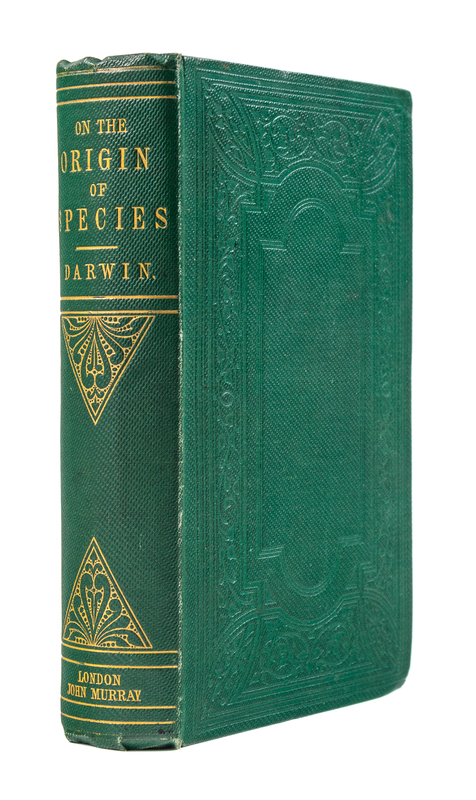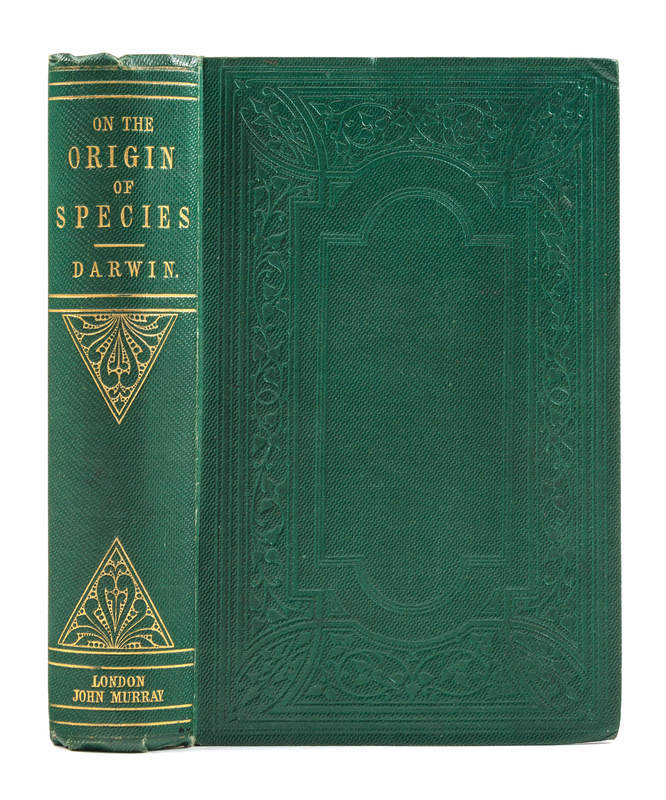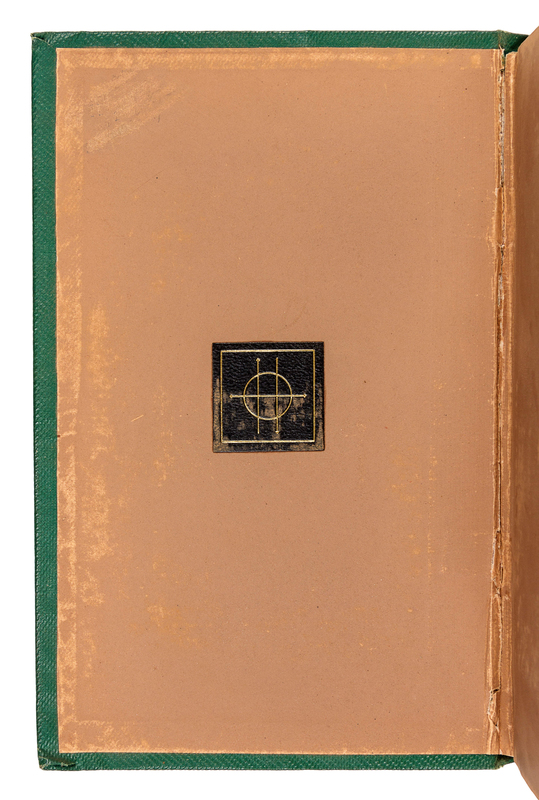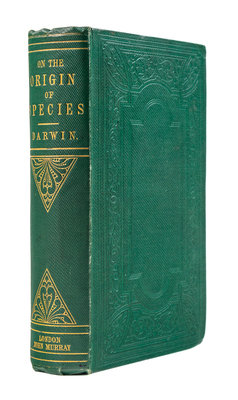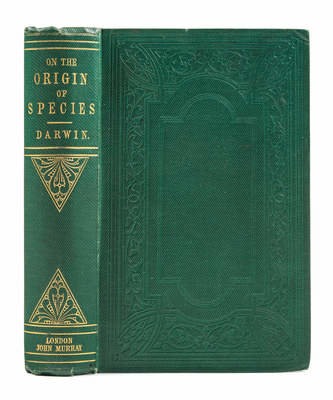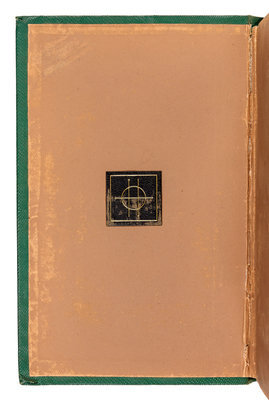Condition Report
Contact Information
Auction Specialist
Lot 24
DARWIN, Charles (1809-1882). On the Origin of Species. London John Murray, 1859. FIRST EDITION, THE VERY FINE MELLON-GARDEN COPY.
Sale 714 - Library of a Midwestern Collector
Nov 5, 2019
10:00AM CT
Live / Chicago
Own a similar item?
Estimate
$120,000 -
180,000
Price Realized
$564,500
Sold prices are inclusive of Buyer’s Premium
Lot Description
DARWIN, Charles (1809-1882). On the Origin of Species. London John Murray, 1859.
8vo in 12s. 32 pp. publisher's catalogue dated June 1859 [Freeman variant 3] at end. Half-title with quotations from "W. Whewell" and Bacon only on verso. Folding lithographic diagram by William West after Darwin bound to face page 117. Original publisher’s green cloth, covers decorated in blind, spine gilt by Edmonds and Remnants with their ticket [Freeman variant a], brown coated endpapers, uncut (rearhinge slightly cracked, front hinge shaken, with one quire sprung, slightest rubbing to joints and spine extremities, otherwise extremely fine and bright). Provenance: Paul Mellon (1907-1999) American philanthropist (morocco Oak Spring book-label); Haven O’More (bookplate, sold Sotheby’s New York, 10 November 1989, lot 196).
THE VERY FINE MELLON-GARDEN COPY
THE FIRST EDITION OF “THE MOST IMPORTANT SINGLE WORK IN SCIENCE” (Dibner). Although some key observations and findings from the voyage of the Beagle acted as his initial inspiration, Darwin's ideas about the beneficial mutation of species did not coalesce into the theory of evolution until his reading of Thomas Malthus's Essay on the Principle of Population in the latter half of 1838. In his Essay, Malthus presented a statistical argument that unrestrained human populations breed beyond their means and struggle to survive; Darwin related Malthus’s argument to the competition for resources among wildlife and to botanist de Candolle’s “warring of the species” in plants. It became clear to him that general competition among living things was part of the “struggle for existence,” and only the best-adapted survived. Although the idea of species evolution can be traced to the Greek “great chain of being,” Darwin’s eventual argument for the existence of a viable mechanism - natural selection - made the concept acceptable to the scientific community.
He completed a 35-page sketch of his evolutionary theory in June 1842, which he converted into a 231-page essay by February 1844. He returned to his notes in late 1854, and after consulting Charles Lyell, began writing an extended treatise for his scientific peers on 14 May 1856. Nearly two years later, in March 1858, “Natural Selection” was two-thirds complete at 250,000 words, and was projected to be published as a three-volume work. In June of the same year, he received a letter form Alfred Russell Wallace regarding his own independent conclusions about evolution. Both scientists presented papers to the Linnean Society on 1 July 1858. At Joseph Dalton Hooker’s suggestion, Darwin completed an abbreviated manuscript of “Natural Selection,” comprising 155,000 words, in April 1859. Stripped of references, the new work was not aimed at specialists, but rather the general reading public. The work was published as On the Origin of Species on 24 November 1859 in an initial print run of 1250 copies, and has since become regarded as “a turning point, not only in the history of science, but in the history of ideas in general" (DSB).
With "species" misspelled "speceies" on page 20, with the whale-bear story in full on page 184. Dibner Heralds of Science 199; Heirs of Hippocrates 1724; Freeman 373; Garrison-Morton (1991) 220; Grolier Science 23b; Norman 593; PMM 344b; Sparrow Milestones 49; Waller 10786. A FINE BRIGHT COPY.
